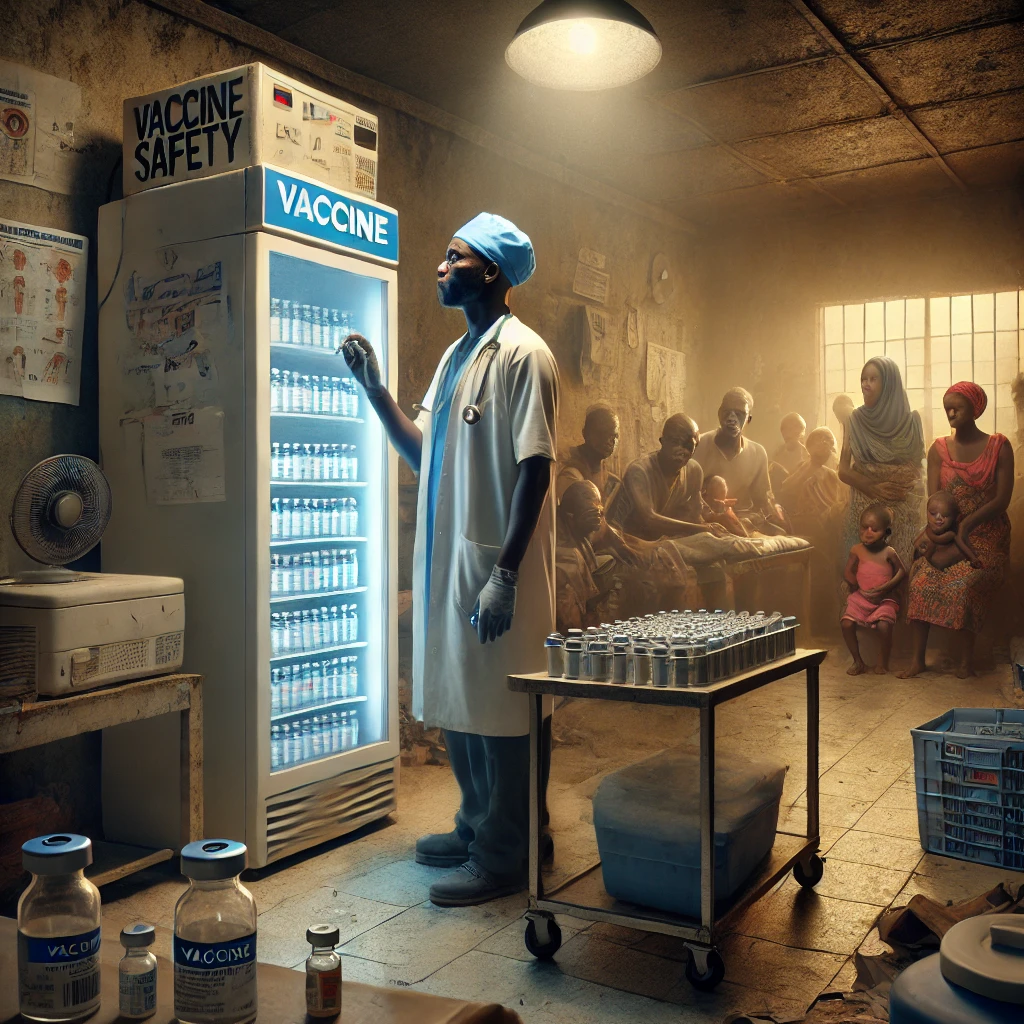Ombud Report Reveals Deadly Negligence at Northern Cape Mental Health Hospital
“Patients were freezing to death,” Professor Mokoena said, highlighting how the collapse of essential services turned state hospitals into zones of life-threatening neglect.

- Country:
- South Africa
A devastating report released by Health Ombud Professor Taole Mokoena has exposed a disturbing pattern of neglect, systemic failure, and fatal mismanagement at the Northern Cape Mental Health Hospital (NCMHH) and the Robert Mangaliso Sobukwe Hospital (RMHSH), following a formal investigation into the treatment, complications, and deaths of psychiatric patients during the winter of 2024.
The findings reveal a grim picture of freezing patients, unsafe infrastructure, dangerous staff shortages, and inadequate medical care, painting what Health Minister Dr Aaron Motsoaledi has called a “tragedy that should never have happened.” The investigation was triggered by a complaint from the Minister himself, following reports of multiple patient deaths and severe complications in state psychiatric facilities in the Northern Cape.
Fatal Consequences: A Timeline of Tragedy
The report centers around the deaths and suffering of several psychiatric patients, beginning with the referral of three critically ill individuals—John Louw, Cyprian Mohoto, and Petrus de Bruin—from NCMHH to RMHSH in July 2024. A fourth patient, Tshepo Mdimbaza, died at NCMHH on 3 August 2024.
According to the Ombud:
-
Cyprian Mohoto died on 16 July 2024 at RMHSH from multilobar pneumonia, a condition likely caused by exposure to extreme cold.
-
Tshepo Mdimbaza died from hypothermia due to exposure during a power outage.
-
John Louw suffered a stroke, attributed to severe hypothermia.
-
Petrus de Bruin also experienced hypothermia and required urgent care.
“Patients were freezing to death,” Professor Mokoena said, highlighting how the collapse of essential services turned state hospitals into zones of life-threatening neglect.
Power Outages, Vandalism, and Deadly Delays
The probe traced the root of the crisis to theft and vandalism of the hospital's electricity infrastructure, which left the mental health facility dependent on a diesel-powered generator that frequently failed. Patients and staff endured prolonged power outages during the harsh Northern Cape winter, resulting in extreme cold, darkness, and unsafe working conditions.
“It took over a year to restore electricity infrastructure at NCMHH, while nearby private hospitals managed to repair theirs in under a month. That speaks volumes about the state’s responsiveness,” said Mokoena.
The pyjamas and blankets provided to patients were described as “flimsy and of poor design,” unable to provide adequate warmth. Nurses had to use cellphone flashlights to carry out basic tasks in the dark, and electromagnetic locks on doors failed, posing major security threats.
No Equipment, No Records, No Leadership
The Ombud highlighted a catalogue of operational and clinical failures:
-
No resuscitation equipment or emergency drugs at NCMHH.
-
Nursing capacity at only 53%, with junior nurses running high-acuity wards unsupervised.
-
Vital signs not recorded, and poor clinical documentation.
-
No medical supervision or coordination, particularly at night.
-
No routine management meetings or mortality reviews, indicating a complete breakdown in administrative leadership.
“These conditions were inhumane and entirely preventable,” Mokoena emphasized. “If interventions were made earlier, these patients could still be alive today.”
Minister Motsoaledi: Professional Misconduct Will Be Addressed
Reacting to the Ombud’s findings, Minister Aaron Motsoaledi expressed deep concern and sorrow, condemning the lack of accountability and oversight at the institutional level. He suggested that there may be grounds to refer some of the medical staff to the Health Professions Council of South Africa (HPCSA) for potential professional misconduct.
“Leadership is absent. I don’t think they even conduct management or mortality meetings. It is an indictment,” the Minister said at a press conference.
Motsoaledi further announced the creation of a National Mental Health Review Committee, which will be tasked with:
-
Reviewing mental health governance across provinces.
-
Investigating failures at NCMHH and RMHSH.
-
Implementing corrective action across the mental healthcare system.
Broader Implications: A National Mental Health Crisis
The report’s findings come amid growing national concern over the state of psychiatric care in South Africa, with systemic underfunding, poor facility maintenance, and staff burnout frequently cited. The NCMHH scandal has now joined the ranks of infamous institutional failures, such as the Life Esidimeni tragedy, as another stark reminder of the fragile state of public mental health care.
Mokoena called for urgent reform, emphasizing the need for adequate resourcing, stronger leadership, regular audits, and legal consequences for failure to meet basic care standards.
A Call for Justice and Reform
As families mourn loved ones lost under preventable circumstances, the Ombud’s report stands as both a condemnation and a catalyst for systemic reform.
“It is our moral and professional obligation to ensure that such gross negligence never happens again,” Professor Mokoena concluded.
The Department of Health has committed to publishing a roadmap for reform within the next quarter, promising improved oversight, staffing strategies, and capital upgrades at facilities like NCMHH and RMHSH.










